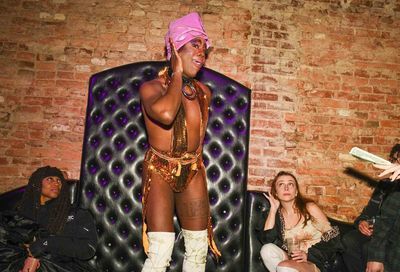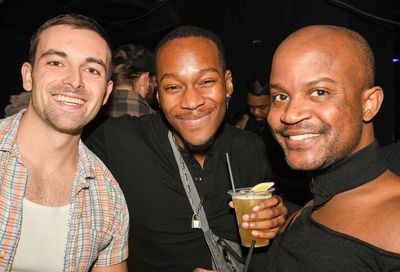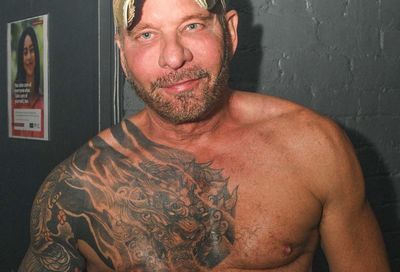Corrupting Influence
Blaming U.S. culture wars for African homophobia won't end either
With friends like Jonathan Clayton of London’s The Times newspaper, gay Africans hardly need enemies.
Clayton declared on May 22, ”Africa’s gays are paying the price for the ideological and cultural battle between US liberals and Conservatives. Concepts such as same-sex marriage, the ordination of gay and women priests, contraception and sex before marriage, female emancipation and equality — the litmus tests of tolerance in the politically correct West — sit uneasily in deeply conservative and traditional societies in Africa.”
Clayton accuses Western liberals of riding roughshod over the cultural identity of ”uneducated and poor populations.” Echoing arguments from the British Home Office — recently rebuked by the British Supreme Court — that gay asylum seekers can safely be returned to their oppressive countries as long as they behave discreetly, he writes of traditional African societies, ”A blind eye was turned towards gays … so long as their actions took place away from public scrutiny.”
Following this old script, equality advocates are rebuked for rocking the boat; historically oppressed populations are robbed of responsibility for their choices today; and fundamental human rights are dismissed as ”imported values.”
Not on your life. Oppression of women and gays, suppression of free speech, and denial of religious freedom are not legitimized because they are practiced by African governments. Any human being and any society can oppress. To insist otherwise infantilizes the designated victims and provides cover for new predators.
Clayton writes of Western liberals, ”By bringing the issue into the open … they have created the exact opposite of that which they wanted.” This echoes the attitude of the establishment gays that Harvey Milk fought in the 1970s.
How should we have responded to the persecution of Steven Monjeza and Tiwonge Chimbalanga in Malawi — apologize for ”corrupting” them? In fact, ethnographers have found indigenous forms of homosexuality throughout Africa. News photos and an interview plainly showed that Chimbalanga in particular was strong-willed and self-motivated. Indeed, many reports in the West missed her stated gender identity.
To the extent that contact with the modern world has inspired LGBT people in Africa to affirm their own dignity and rights, and despite the risks of standing up for themselves, bully for us and them. We cannot avoid such contact any more than you could have turned off all the televisions across the world that were tuned to the FIFA World Cup matches recently ended in South Africa. Even terrorists cannot turn back the tide.
It’s quaint to think we could impose a cultural and political quarantine on the developing world, even if we were fit to make that decision. Change is difficult but inevitable, and it flows in both directions. The radical Christian right has an aggressive presence in many African countries. It needs to be countered for the sake of women and LGBT people, which requires more international organizing, not less.
Of course we must be careful to consult the local activists who bear the risk of retaliation. That is a matter of responsibility and respect. It is not a reason for silence. African groups like Gays and Lesbians of Zimbabwe, with whom I first interacted in 1995 — and who were recently hit with more of President Mugabe’s brutality — have made their own choice. With support systems far thinner than Westerners’, they have shown remarkable courage and grace.
Tiwonge Chimbalanga’s determination in defense of her love with Steven Monjeza was awesome. Alas, while they were pardoned on May 29 after an international outcry, their suffering continues. They were forcibly separated under threat of re-arrest, with their continued repression turned over to their families. Their tragedy, and that of countless others in similar circumstances, calls for more and better help from us, not another crippling round of post-colonial hand-wringing.
Support Metro Weekly’s Journalism
These are challenging times for news organizations. And yet it’s crucial we stay active and provide vital resources and information to both our local readers and the world. So won’t you please take a moment and consider supporting Metro Weekly with a membership? For as little as $5 a month, you can help ensure Metro Weekly magazine and MetroWeekly.com remain free, viable resources as we provide the best, most diverse, culturally-resonant LGBTQ coverage in both the D.C. region and around the world. Memberships come with exclusive perks and discounts, your own personal digital delivery of each week’s magazine (and an archive), access to our Member's Lounge when it launches this fall, and exclusive members-only items like Metro Weekly Membership Mugs and Tote Bags! Check out all our membership levels here and please join us today!























